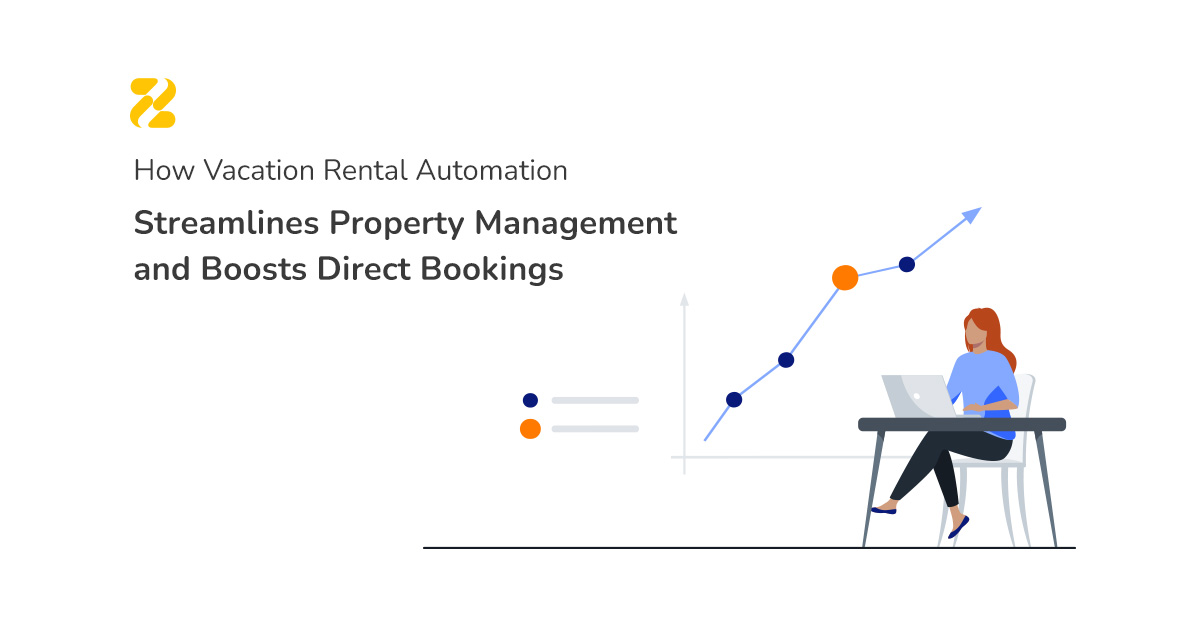Many vacation rental managers are in two minds about whether or not safeguard their properties with a security deposit. Some managers fear the risk of driving vacationers away with higher upfront costs. But, others think that guests will feel a great responsibility for their home with security deposits for vacation rentals in place.
No matter how picky you are in accepting reservations and how firm your house rules are, damages are inevitable as you let various groups of strangers stay in your vacation home. Your rental revenue can barely cover the normal wear and tear, let alone the unexpected costs caused by breakages. Luckily, short-term rental security deposits are there to provide a financial shield for property managers.
Table of Contents
What Is Security Deposit for Vacation Rentals?
A security deposit is an amount of money collected from guests to cover breakages and property damages. It can also be claimed for missing items, excessive cleaning fees, and additional repair charges caused by guests.
1. Deciding the Right Short-Term Rental Security Deposit
Determining the ideal short-term rental security deposit involves a delicate balance. Factors such as nightly rates, amenities, duration of stay, and property size all play a role. Striking the right amount is crucial—it should cover potential damages without scaring off potential guests in this competitive market. Explore local regulations and survey deposit amounts in similar rentals to find the sweet spot.

The damage deposit can be a set amount like 350 GBP or 10% of the total rental price. Don’t forget to check out your local legislation and similar rentals’ deposit amounts before setting your short-term rental security deposit.
2. Capturing Security Deposits for Vacation Rentals
Capturing security deposits demands strategic choices. Traditional methods like cash, cheques, or bank transfers come with limitations and drawbacks, such as currency and geographic limitations, lack of tracking, and high transaction fees. Opting for a pre-authorisation, a temporary hold on a guest’s credit card, reserving funds for a future payment transaction.
This method offers advantages such as ease of tracking and fewer transaction fees. When the payment is pre-authorised, the guests can’t access or spend it anywhere. And when it is time to check out, the deposit is released to guests or charged as damage fees. However, understanding the associated costs is paramount in making an informed decision.
3. Collecting and Communicating Security Deposits for Short-Term Rentals
As a host, you must ask your guests to report accidental damages to your property. Meanwhile, train your housekeeping staff to conduct thorough inspections post-departure for any damages and breakages after the guests’ departure. If no significant damages occur, release the deposit swiftly.

For potential charges, communicate clearly with evidence like photos and bills. Security deposit pre-authorisation must be processed within a timely manner of 7 to 14 days. The duration depends on the channels you receive your bookings from or your online payment solutions. Don’t forget to take care of the due dates. Timeliness in processing deposits fosters guest confidence and positive reviews.
Note that withholding or misusing security deposits will negatively impact your business in the long run.
4. Setting Strategic House Rules
Crafting comprehensive house rules is pivotal. Clearly define chargeable damages that could lead to a deduction from the security deposit.
List security deposits separately from the nightly rates and explicitly state that you will release the funds after the check-out should there be no damages to the property. This can reassure your guests that you will not charge them unless they violate your house rules.
Don’t charge your guests for minor damages or normal wear and tear of your house. Charging guests for small incidents risks negative reviews and harms your brand image.
5. Exploring Deposit-Free Alternatives
On the one hand, declaring security deposits for short-term rentals can negatively affect your relationships with guests. Guests are more likely to book with hosts who don’t ask for a deposit. Deposits can feel disrespectful to some travellers, so they prefer booking with easygoing property managers. That’s why many vacation rental hosts go with deposit-free rentals and try to fill the trust gap with prospective guests.

On the other hand, you want to get your back covered for those rainy days. The possibility of confronting troublemaking guests is minor. However, setting a short-term rental security deposit gives you peace of mind and a sense of safety. Should you wish to offer deposit-free rentals for your guests’ comfort while keeping your properties safe, Zeevou has a solution for you.
Zeevou, in collaboration with Truvi, offers a solution that eliminates traditional deposit transactions. By integrating this system, you not only provide a seamless experience for guests but also ensure safety through Truvi’s verification process. It provides guests’ profiles and marks them as verified/unverified based on their previous experiences in other vacation rentals.
What has driven property managers to capture security deposits for vacation rentals is its protection and ease of use. Navigating the nuances of security deposits demands a thoughtful approach. When executed strategically, security deposits act as a shield, offering protection for your property while maintaining positive guest relationships. With the right balance and transparent communication, your vacation rental can thrive in this competitive landscape.





